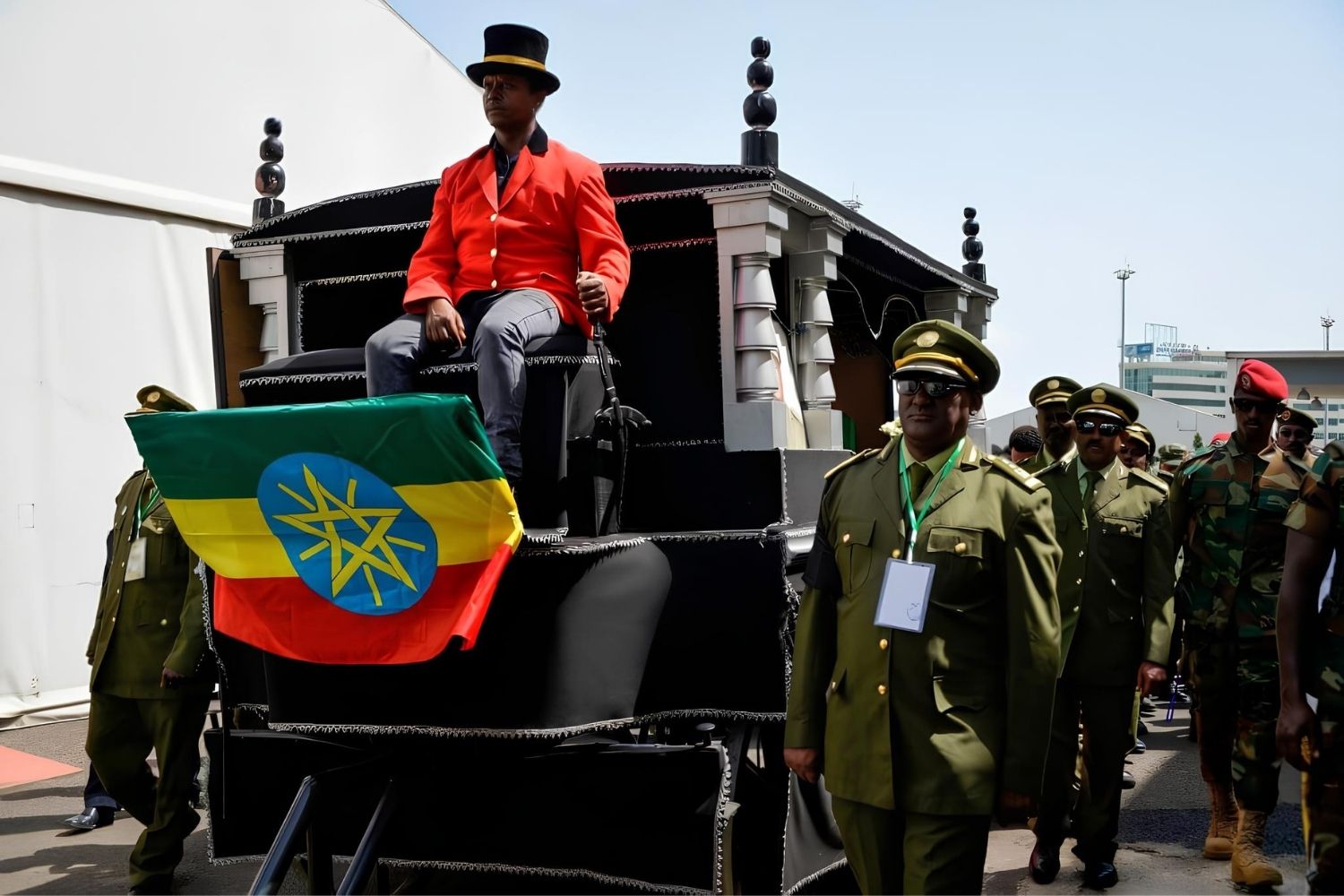
Did you know that Ethiopia has experienced several coup d'état attempts throughout its history? These attempts have shaped the nation's political landscape and influenced its path to modernity. From the early 20th century to recent years, Ethiopia's journey has been marked by dramatic power struggles, brave leaders, and significant turning points. Understanding these events helps us appreciate the resilience and complexity of Ethiopian society. This blog post dives into 25 intriguing facts about these coup attempts, shedding light on the motivations, key players, and outcomes. Get ready to uncover the fascinating stories behind Ethiopia's turbulent political history.
Key Takeaways:
- The Ethiopian coup attempt involved high-profile assassinations and failed due to regional tensions, power struggles, and historical grievances, impacting the country's political landscape and global attention.
- The aftermath led to increased security measures, arrests, and trials, exacerbating political tensions and challenging reform agendas, affecting public trust and regional stability.
The Ethiopian Coup D'État Attempt: An Overview
The Ethiopian coup d'état attempt is a significant event in the country's history. It involved a series of political maneuvers, military actions, and dramatic moments that captured global attention. Here are some fascinating facts about this historical event.
Key Figures and Events
Understanding the main players and pivotal moments helps to grasp the full scope of the coup attempt.
- Prime Minister Abiy Ahmed: The sitting Prime Minister during the coup attempt. His leadership was a central focus.
- General Asaminew Tsige: The alleged mastermind behind the coup. He was the Amhara region's security chief.
- Amhara Region: The coup attempt primarily took place in this region, highlighting regional tensions.
- June 22, 2019: The date when the coup attempt occurred. It was a day of chaos and violence.
- Assassination of Ambachew Mekonnen: The Amhara regional president was killed during the coup attempt.
- Assassination of General Seare Mekonnen: The Chief of Staff of the Ethiopian National Defense Force was also killed.
- Brigadier General Gezai Abera: Another high-ranking official killed during the coup attempt.
- Failed Coup: Despite the violence and high-profile assassinations, the coup attempt ultimately failed.
Motivations Behind the Coup
The reasons behind the coup attempt are complex and rooted in Ethiopia's political landscape.
- Ethnic Tensions: Ethiopia's diverse ethnic groups have long-standing tensions, which played a role in the coup.
- Political Reforms: Abiy Ahmed's reforms aimed at democratization and liberalization faced resistance.
- Power Struggles: Internal power struggles within the government and military contributed to the coup attempt.
- Economic Issues: Economic challenges and disparities fueled discontent among various groups.
- Historical Grievances: Historical injustices and grievances also played a part in the motivations behind the coup.
International Reactions
The coup attempt drew reactions from around the world, highlighting its global significance.
- African Union: The African Union condemned the coup attempt and called for stability.
- United Nations: The UN expressed concern and urged for peaceful resolution.
- United States: The U.S. condemned the violence and supported Ethiopia's government.
- Neighboring Countries: Countries like Sudan and Kenya closely monitored the situation, given regional implications.
- Global Media Coverage: The coup attempt received extensive coverage, bringing international attention to Ethiopia's political situation.
Aftermath and Consequences
The coup attempt had lasting impacts on Ethiopia's political landscape and security situation.
- Increased Security Measures: The government implemented stricter security measures to prevent future attempts.
- Arrests and Trials: Numerous arrests were made, and trials were conducted for those involved in the coup.
- Political Tensions: The coup attempt exacerbated existing political tensions within the country.
- Reform Challenges: Abiy Ahmed's reform agenda faced additional challenges in the wake of the coup.
- Public Sentiment: The public's trust in the government and military was affected by the coup attempt.
- Regional Stability: The coup attempt had implications for regional stability, affecting neighboring countries.
- Legacy of Violence: The violence and assassinations left a lasting legacy on Ethiopia's political history.
Reflecting on the Ethiopian Coup D'État Attempt
The Ethiopian Coup D'État Attempt of 2019 was a significant event that shook the nation. It highlighted the ongoing political tensions and the challenges faced by the government in maintaining stability. The coup, led by Brigadier General Asaminew Tsige, resulted in the tragic deaths of key political figures, including the Chief of Staff of the Ethiopian National Defense Force, General Se'are Mekonnen. This event underscored the fragility of peace in Ethiopia and the need for continued efforts towards political reform and national unity. Understanding these facts helps us grasp the complexities of Ethiopian politics and the importance of vigilance in safeguarding democracy. The aftermath of the coup has led to increased security measures and a renewed focus on addressing the underlying issues that contribute to such unrest.
Frequently Asked Questions
Was this page helpful?
Our commitment to delivering trustworthy and engaging content is at the heart of what we do. Each fact on our site is contributed by real users like you, bringing a wealth of diverse insights and information. To ensure the highest standards of accuracy and reliability, our dedicated editors meticulously review each submission. This process guarantees that the facts we share are not only fascinating but also credible. Trust in our commitment to quality and authenticity as you explore and learn with us.
